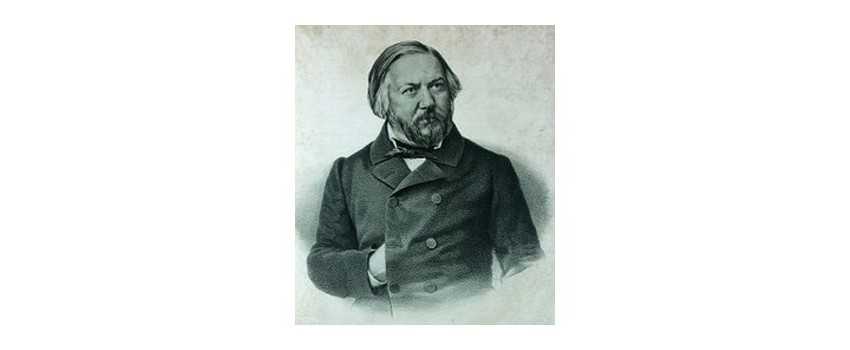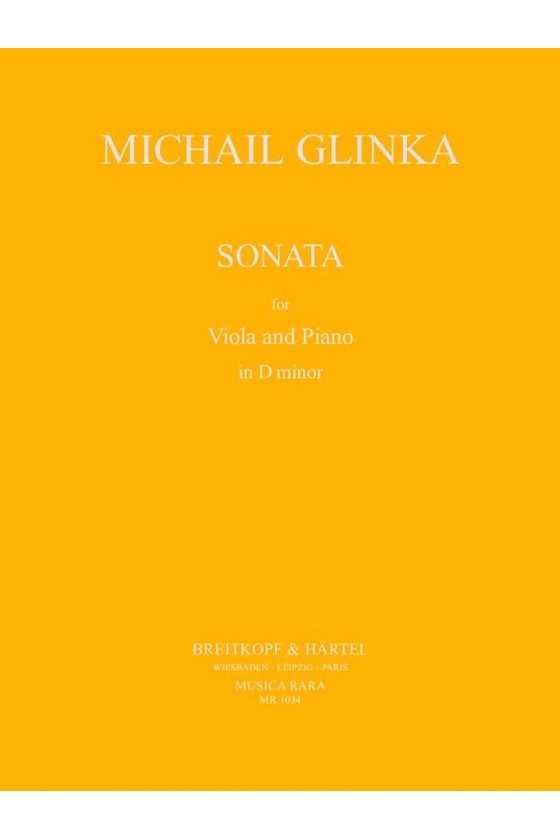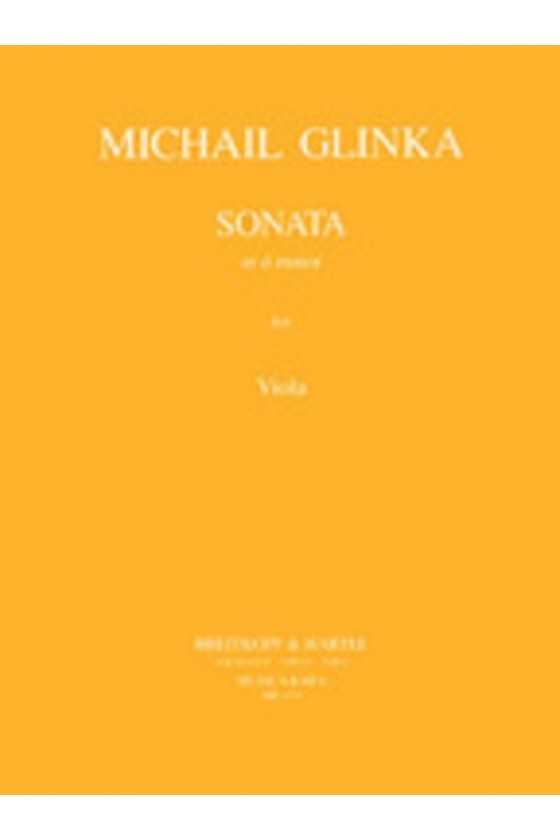Glinka, Sonata In D Minor For Viola And Piano (Breitkopf & Härtel)
The editor printed his sections in small type. Glinka's Viola Sonata is his most successful pre-Italian composition. Although initially intended for domestic music-making, it showcases "quite clever counterpoint." Free from Italianate mannerisms, it's a charming addition to the viola repertoire.



